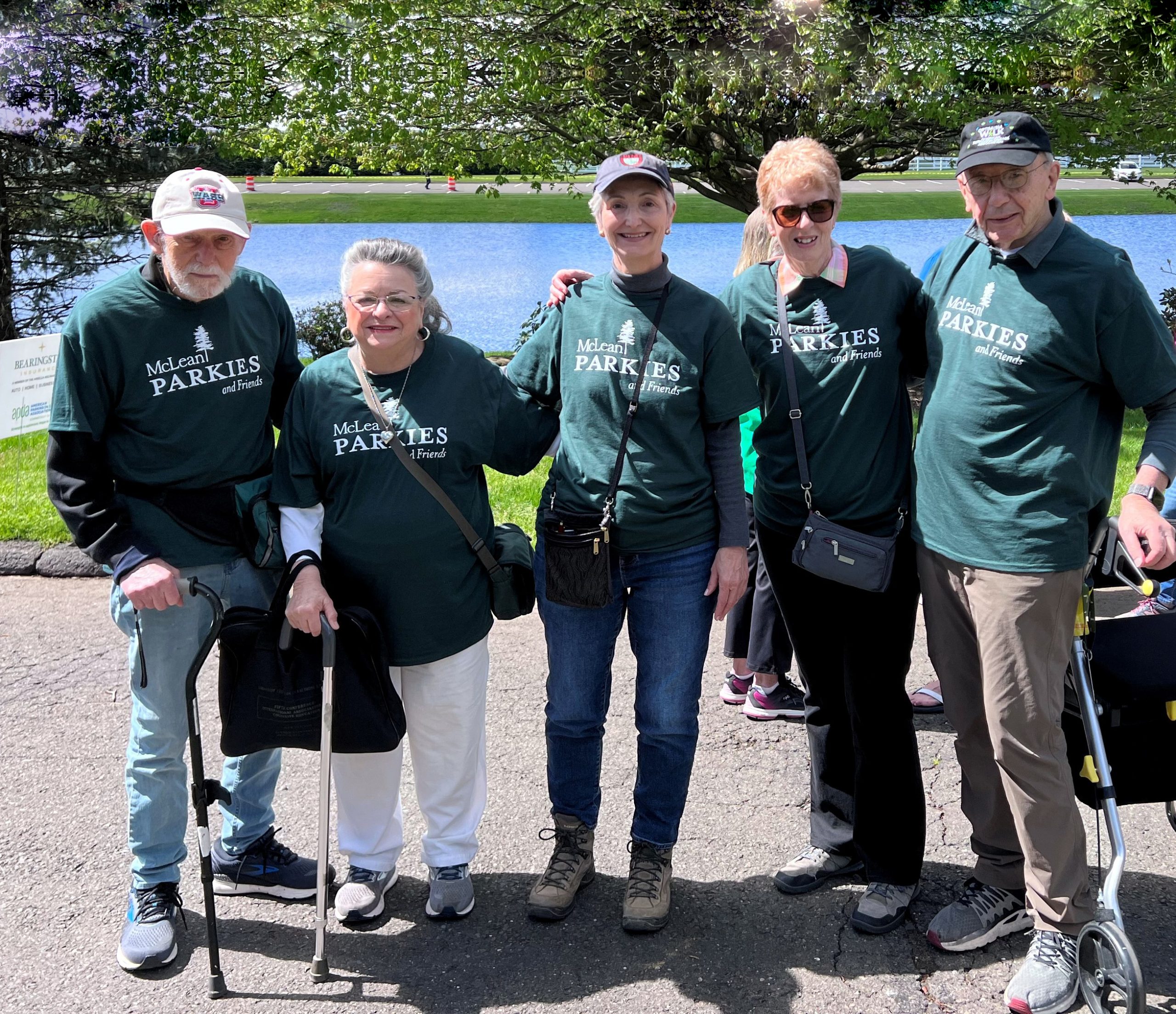April Is Parkinson’s Awareness Month.
While there is currently no cure for Parkinson’s disease, emerging research suggests that lifestyle modifications and holistic approaches to wellness can complement conventional treatment and promote well-being in individuals living with Parkinson’s.
Focusing on holistic wellness can address a broad spectrum of factors, including physical, mental, emotional, and social aspects of health. As Kimberly Wright, Director of Wellness and staff coordinator of the “Parkies & Friends” group at McLean, notes, “For individuals with Parkinson’s, supporting overall wellness is essential for maintaining independence, optimizing mobility, and enhancing quality of life.” Here Kim shares some key components of a holistic approach to wellness for Parkinson’s:
- Physical Activity: Regular exercise is vital for managing Parkinson’s symptoms and preserving mobility. Activities such as walking, swimming, yoga, tai chi, and even ping pong can improve balance, flexibility, and strength. Exercise also promotes the release of endorphins, which can help alleviate depression and anxiety.
- Nutrition: A well-balanced diet rich in fruits, vegetables, whole grains, lean proteins, and healthy fats supports overall health and may have neuroprotective effects. Certain nutrients, such as antioxidants and omega-3 fatty acids, have been studied for their potential benefits in Parkinson’s management.
- Mind-Body Practices: Practices like meditation, mindfulness, and deep breathing exercises can help individuals cope with stress, reduce anxiety, and enhance emotional well-being. These techniques also promote relaxation and may alleviate the muscle tension associated with Parkinson’s.
- Social Support: Maintaining social connections and participating in support groups can combat feelings of isolation and depression often experienced by individuals with Parkinson’s. Sharing experiences, advice, and resources with others who understand the challenges of the condition can be empowering and comforting.
- Cognitive Stimulation: Engaging in mentally stimulating activities, such as puzzles, games, reading, or learning new skills, can help preserve cognitive function and improve brain health. Cognitive stimulation is especially important given the cognitive changes that can occur in Parkinson’s disease.
- Quality Sleep: Prioritizing good sleep hygiene and addressing sleep disturbances is crucial for overall wellness. Poor sleep quality can exacerbate Parkinson’s symptoms and contribute to mood disturbances and cognitive impairment.
Memberships to McLean’s Boundless Wellness program are available to the people age 55+. As always, consult your physician before undertaking any changes to your health and fitness regimen. If you or a loved one have been diagnosed with Parkinson’s and would like information on attending the monthly Parkinson’s support group held at McLean, please contact Kimberly.Wright@McLeanCare.org.


